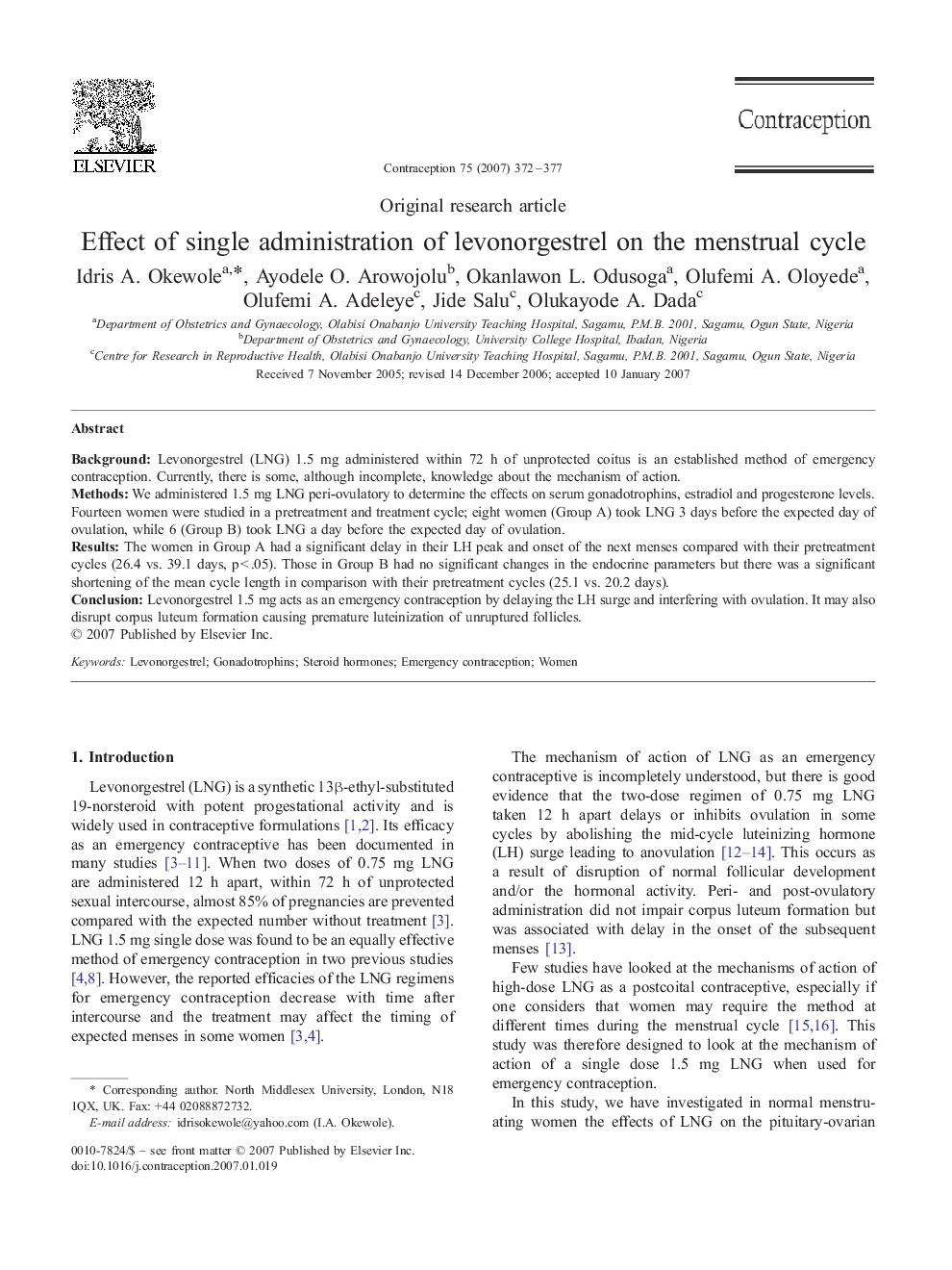| کد مقاله | کد نشریه | سال انتشار | مقاله انگلیسی | نسخه تمام متن |
|---|---|---|---|---|
| 3915770 | 1251520 | 2007 | 6 صفحه PDF | دانلود رایگان |

BackgroundLevonorgestrel (LNG) 1.5 mg administered within 72 h of unprotected coitus is an established method of emergency contraception. Currently, there is some, although incomplete, knowledge about the mechanism of action.MethodsWe administered 1.5 mg LNG peri-ovulatory to determine the effects on serum gonadotrophins, estradiol and progesterone levels. Fourteen women were studied in a pretreatment and treatment cycle; eight women (Group A) took LNG 3 days before the expected day of ovulation, while 6 (Group B) took LNG a day before the expected day of ovulation.ResultsThe women in Group A had a significant delay in their LH peak and onset of the next menses compared with their pretreatment cycles (26.4 vs. 39.1 days, p<.05). Those in Group B had no significant changes in the endocrine parameters but there was a significant shortening of the mean cycle length in comparison with their pretreatment cycles (25.1 vs. 20.2 days).ConclusionLevonorgestrel 1.5 mg acts as an emergency contraception by delaying the LH surge and interfering with ovulation. It may also disrupt corpus luteum formation causing premature luteinization of unruptured follicles.
Journal: Contraception - Volume 75, Issue 5, May 2007, Pages 372–377